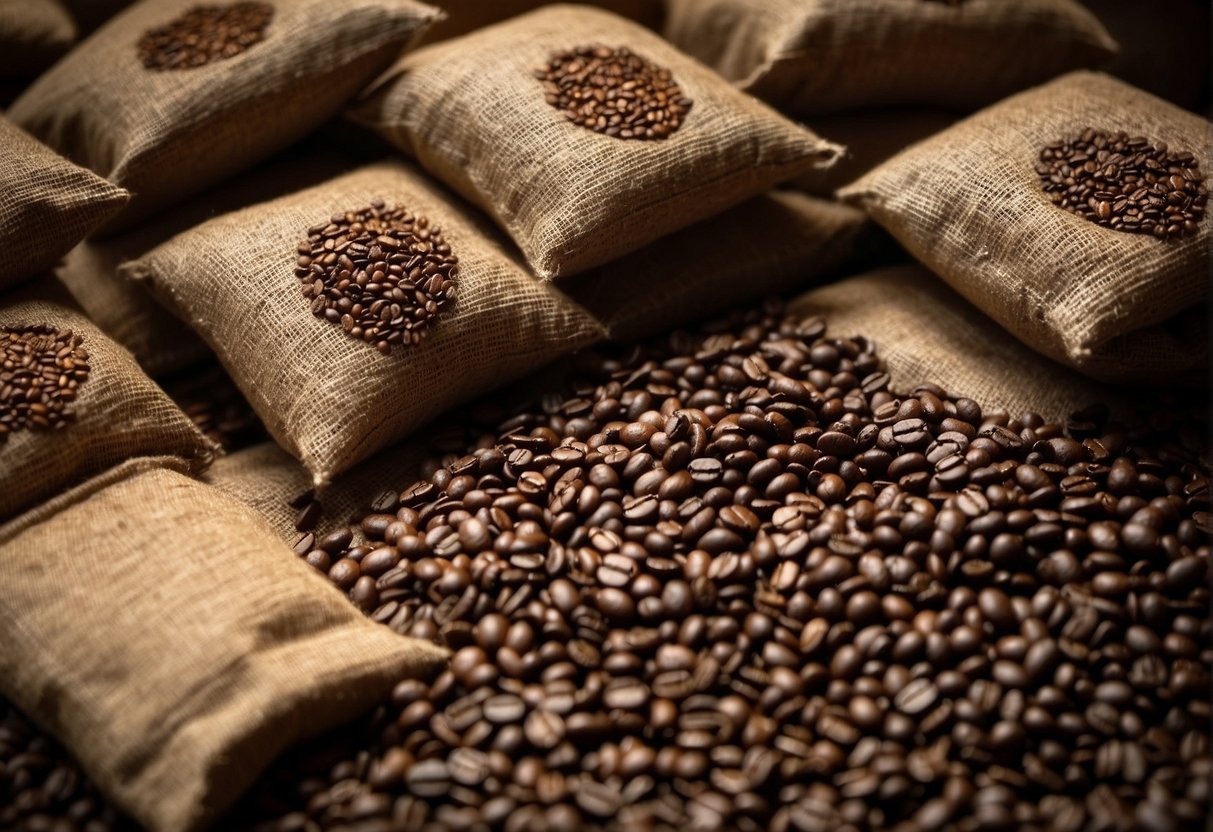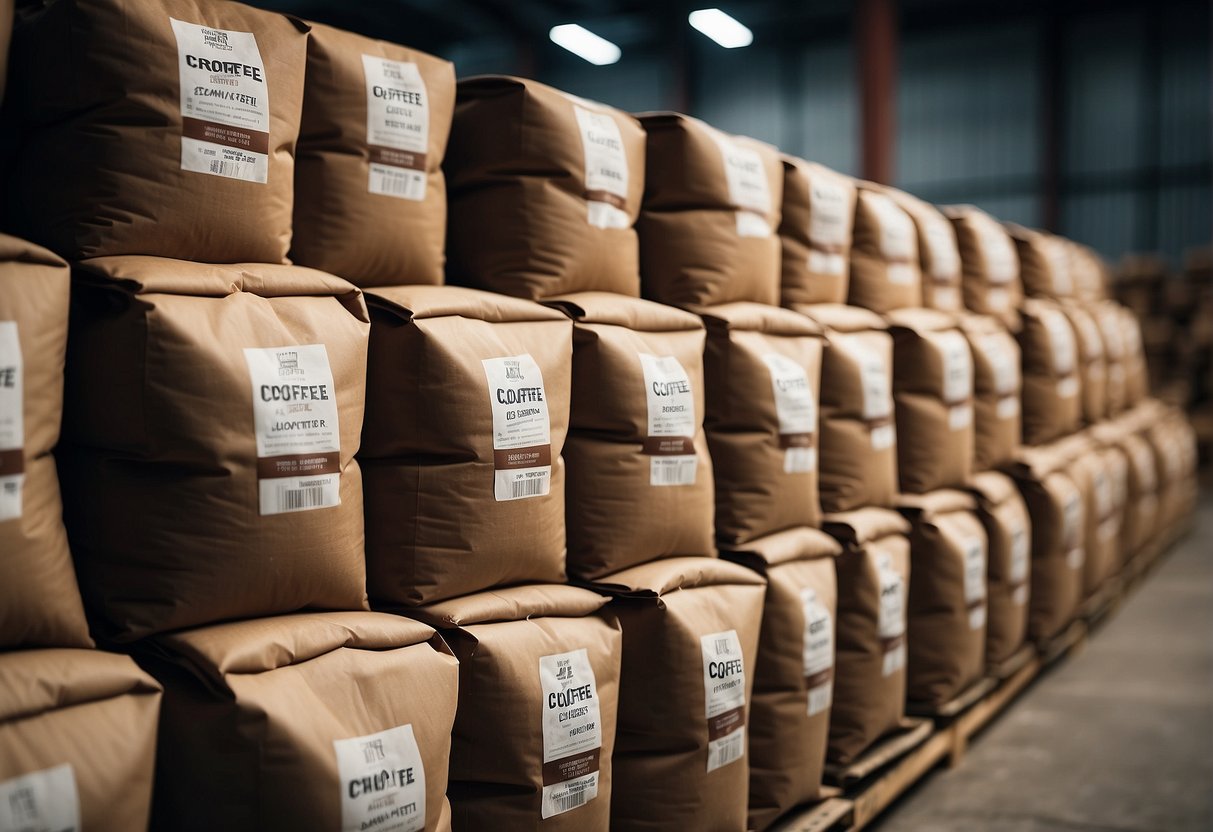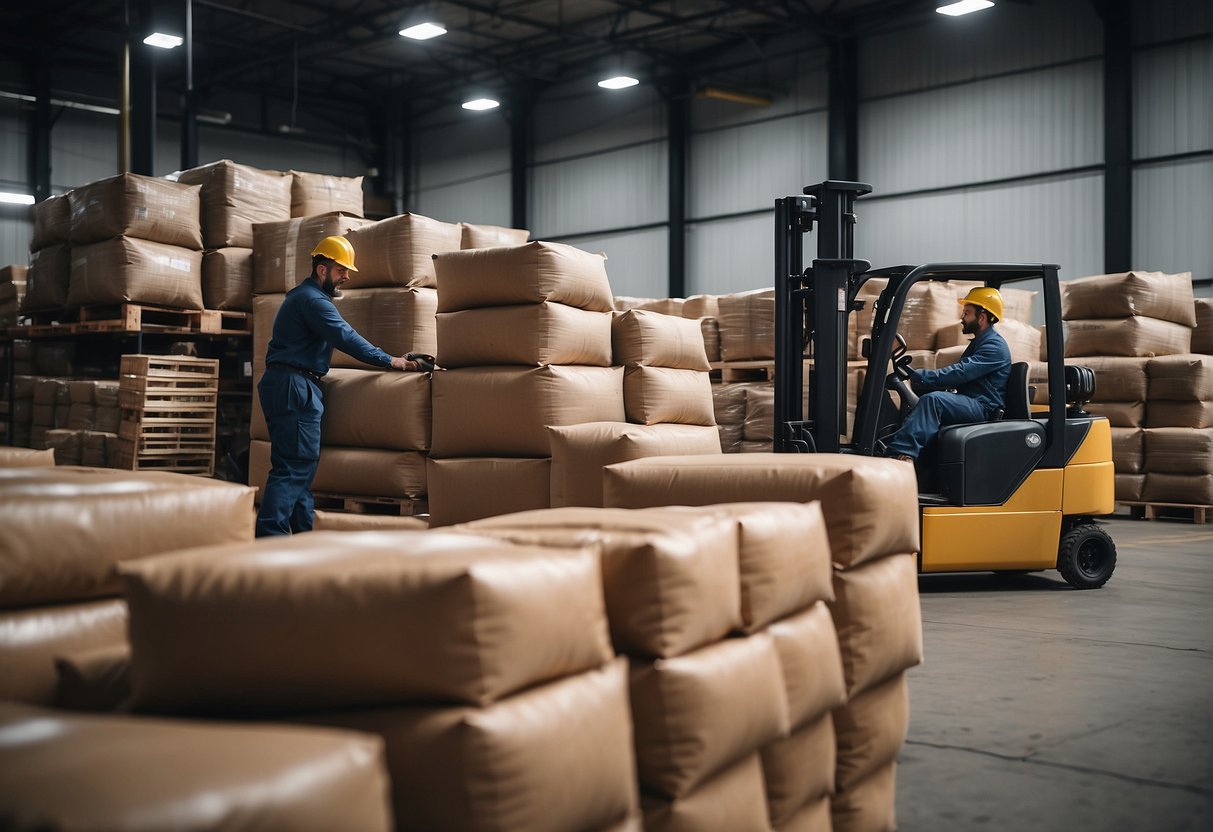Bulk coffee purchasing, especially in quantities like 50 pounds, offers a strategic advantage for businesses that operate in the coffee industry or simply use a significant amount of coffee in their day-to-day operations. By buying coffee beans in bulk, businesses can secure a better price per pound compared to smaller purchases, which can lead to significant cost savings over time. This practice is not only cost-effective but also ensures that establishments such as cafés, restaurants, and offices maintain a consistent supply of coffee to meet the demands of their customers and staff.

Wholesale coffee suppliers cater to the needs of such businesses by providing a variety of coffee beans in large quantities, including the popular bulk green coffee options which are favored by those who prefer to roast their own beans to create custom blends. Reliable access to wholesale coffee allows businesses to sustain their inventory without the risk of running short, which is crucial for operations where coffee plays a central role in the service provided. Additionally, suppliers often curate their bulk offerings to ensure consistency and quality, aiding businesses in delivering a stable product that meets the expectations of their clientele.
Customers seeking to purchase large amounts of coffee in 50-pound increments have several options, including specialty green coffees or ready-to-roast blends, which are available from various online retailers and wholesalers. Selecting the right supplier involves considering not only the cost but also the origin, variety, and flavor profile of the beans to ensure that the end product aligns with the business’s brand and customers’ tastes. By investing in bulk coffee purchasing, businesses position themselves to achieve a balance between quality and cost-efficiency, solidifying their place in the competitive market.
Benefits of Bulk Coffee Purchases
Purchasing bulk coffee, especially in increments like 50 lbs, can offer tangible advantages. Key benefits include significant cost savings and assurance of freshness and quality for frequent coffee users or businesses.
https://www.youtube.com/watch?v=GuJ2f8OoAco&embed=true
Cost Savings
When one buys coffee in larger quantities such as 50 lbs, they typically secure a lower price per pound versus smaller packages. Not only does this translate to direct monetary savings, but it also reduces the frequency of orders, which can save on shipping costs over time. For example, wholesale coffee buyers may find that they can access higher-grade coffee at more affordable rates, making the cost per cup of coffee much more economical in the long run.
Freshness and Quality
Buying bulk does not necessarily mean compromising on the freshness or quality of coffee. In fact, storing coffee in larger quantities can maintain its quality if proper storage conditions are met. Coffee enthusiasts often prefer to purchase bulk to ensure a consistent supply of their favorite beans, which they can grind fresh as needed. This ensures that each cup of coffee is as fresh as possible, making the most of the beans’ flavor profiles and aroma.
Understanding Coffee Types and Flavors

In the world of coffee, a large variety of flavors can be experienced, which are intricately linked to the type of coffee bean used. Gourmet coffee buyers especially should note that flavor profiles vary significantly between different types of beans, with Arabica beans being a popular choice for quality and taste.
Arabica Beans
Arabica beans are prized in the coffee industry for their smooth, distinct flavors and low acidity. They often make up the majority of gourmet coffee blends. These beans thrive at higher altitudes and are recognized by their oval shape and a slightly deeper crease that runs down the middle of the bean. When considering bulk coffee 50 lbs purchases, Arabica is a top contender for those who prefer a more nuanced flavor.
Flavor Profiles
The flavor profiles of coffee can range widely, influenced by the roast level, origin, and processing of the beans. For example, light roasts tend to retain more of the bean’s original flavor, producing a cup with higher acidity and pronounced floral or citrus notes. Medium roasts manifest a balanced flavor that may bring out the bean’s natural sweetness. On the other hand, dark roasts feature a bold, smoky taste, often with flavors of chocolate or molasses.
- Flavor Notes: Depending on the specific type of Arabica bean and its origin, one might detect a variety of flavor notes:
- Floral or citrus tones typical of lighter roasts
- Sweetness and balance found in medium-bodied coffees
- Rich, strong qualities present in heavy-bodied dark roasts
In purchasing large quantities, like wholesale bulk coffee, it’s important to understand these profiles to cater to different preferences and ensure satisfaction, whether it’s for a café, restaurant, or personal consumption. Each cup’s flavor is an invitation to explore the diverse world of coffee, from the very first sip.
The Bulk Coffee Supply Chain

The bulk coffee supply chain is an intricate network that manages the flow of green coffee from farms to roasteries and then to various distribution points. It’s governed by meticulous timing and coordination to ensure the freshness and quality of wholesale coffee beans.
From Farm to Roastery
Green coffee, the unroasted seeds of the Coffea plant, is the foundation of the supply chain. Producers at the origin countries harvest, process, and prepare these beans for export. Quality control is critical during this stage; beans are often handpicked and sorted, ensuring only the best are sent to roasteries. Once prepared, these beans are packaged in bulk, often in 50 lb bags to protect them during transit and maintain their quality.
Shipping and Logistics
Shipping and logistics handle the transportation of green coffee on a global scale. Bulk coffee is loaded into shipping containers and transported via freight ships to its destined country. Logistics providers must factor in shipping times and storage conditions to mitigate the risk of spoilage or flavor degradation. Upon arrival, the wholesale coffee beans reach the roastery, where they’re roasted, packaged, and prepared for final shipment to retailers or direct consumers. Effectively managing inventory levels and roasting schedules is key to supply chain efficiency, as it allows roasteries to respond quickly to market demands without compromising on the freshness of their product.
Best Practices for Storage and Freshness
When storing bulk coffee, maintaining freshness is crucial for preserving the taste and quality of the beans. One should ensure that the coffee is kept in an opaque, air-tight container at room temperature. Exposure to light can compromise the coffee’s flavor, so clear canisters are not recommended. Instead, one might prefer containers like the Kilovac, which boasts a considerable capacity for dry goods.
Coffee beans are best kept in a dark, cool location, away from any heat sources like an oven. Heat can accelerate the degradation process, leading to stale coffee. It’s also important to note that coffee should not be stored in the refrigerator due to the presence of moisture which can affect the beans’ quality.
For those looking to store coffee for extended periods of time, the deep freeze method has become more accepted. However, careful measures should be taken to avoid condensation and freezer burn which can taint the beans.
Here is a compact list of the key factors:
- Container: Opaque, air-tight
- Temperature: Room temperature, cool
- Light: Avoid exposure
- Moisture: Keep dry
- Freezer Storage: Use cautiously, avoid moisture
Bulk bags of coffee can hold their freshness for a limited time. After opening, one should transfer the beans to a proper storage container to maximize the preservation of flavor and freshness.
Preparing and Brewing Bulk Coffee
When dealing with 50 lbs of coffee, two critical factors come into play: the grind size and the brewing method. Proper attention to these will ensure the desired flavor and quality in each cup.
Choosing the Right Grind
The grind of coffee is pivotal to its flavor extraction during brewing. For bulk preparation, a coarse grind is often recommended, comparable to the texture of Kosher salt. This larger grind size permits water to flow through without over-extracting, which is essential when brewing large quantities and helps maintain a consistent flavor.
Brewing Techniques
For the brewing of bulk coffee, methods such as cold brew and French press are commonly utilized. Cold brew requires coffee grounds to be steeped in cold water for an extended period, typically around 18-24 hours, allowing for a smooth and less acidic taste. On the contrary, French press involves a shorter brew time, approximately 4 minutes, and results in a well-rounded, full-bodied coffee appreciated by many.
Utilizing the right technique plays a significant role in ensuring the final brew meets expectations in terms of flavor intensity and taste profiles. Whether it’s a refreshing cold brew or a warm French press, considering the volume, the appropriate technique ensures each batch is an embodiment of perfection.
